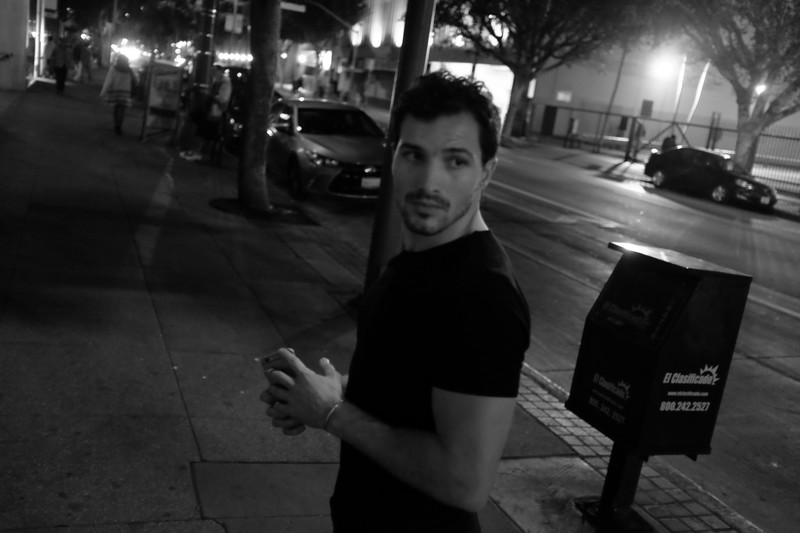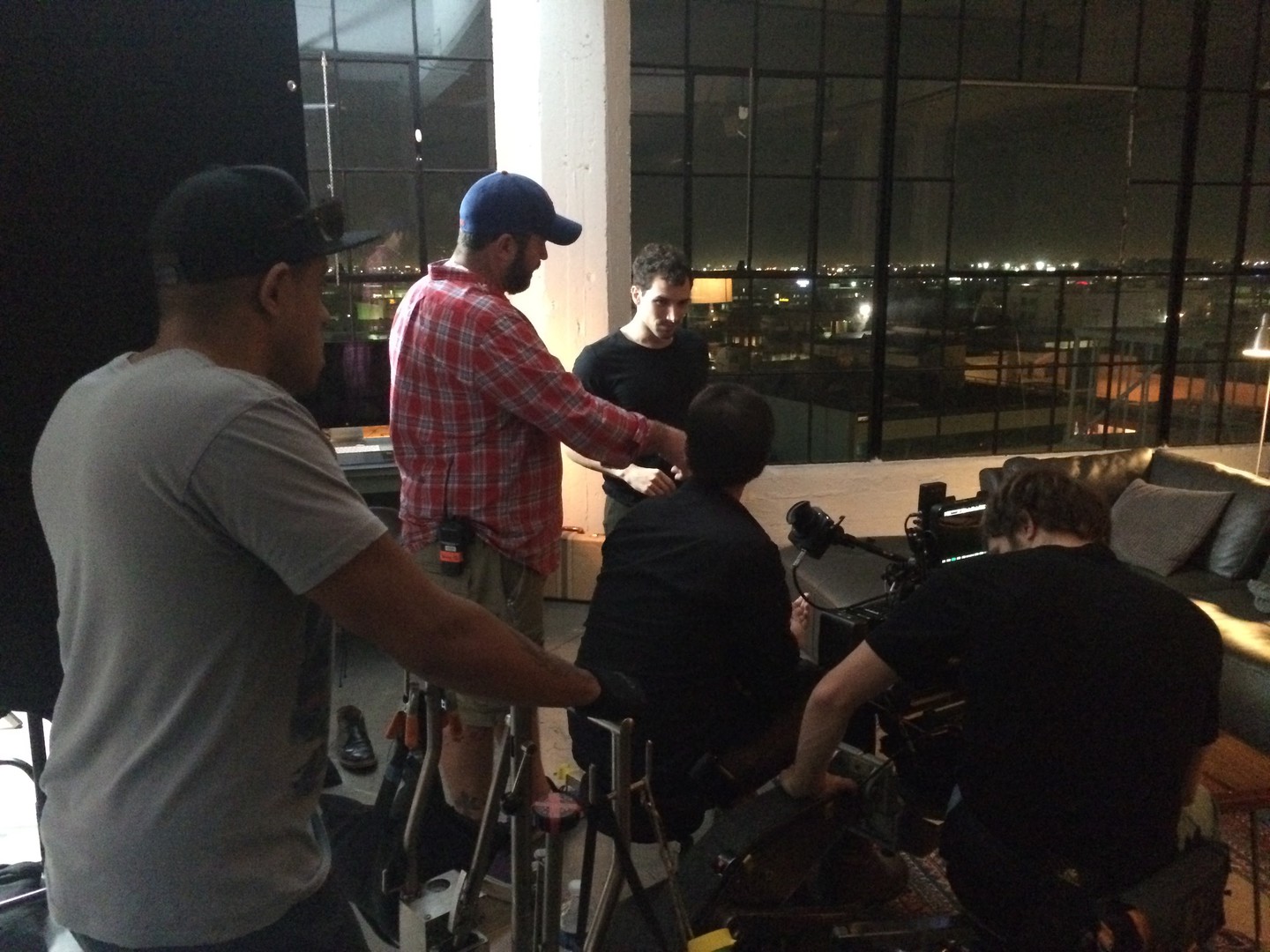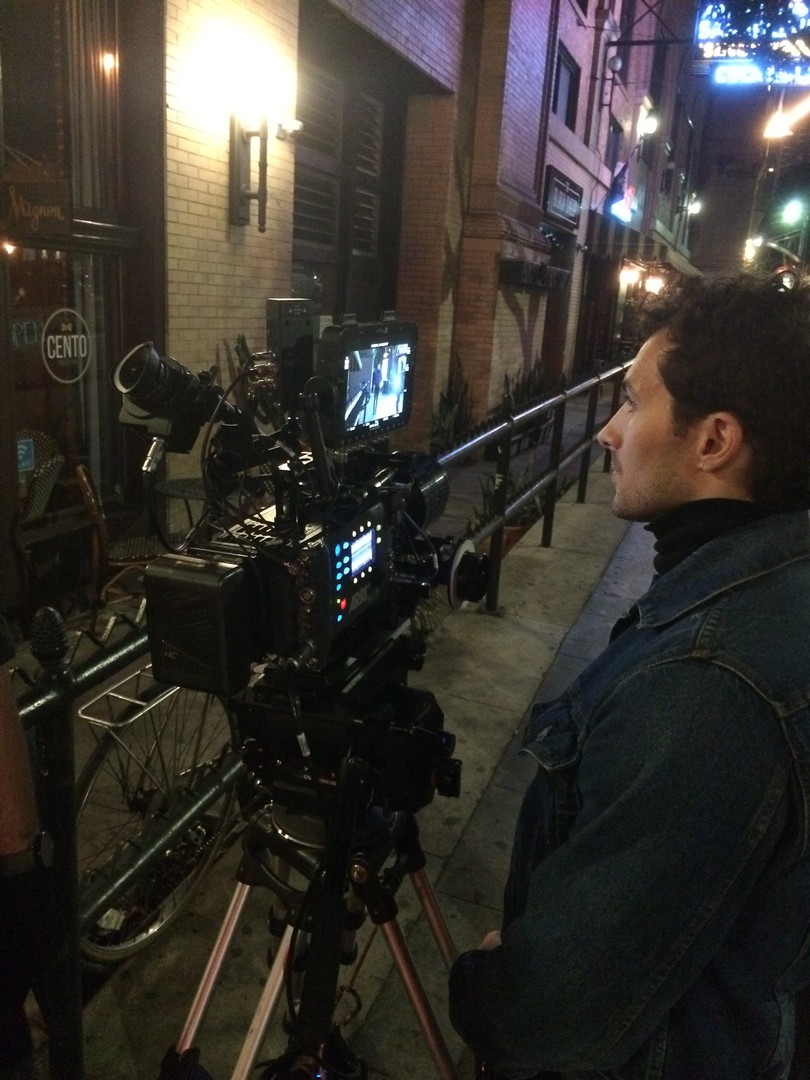DANCE
A silent film for the digital age, DANCE explores the impacts of the digital age in the realms of self-perception, love, and, desire. Max, our antihero, is paradoxically consumed by both self-centeredness and an existential loneliness. Having ceded control of his social interactions to self-promotion in his perfectly curated world of social media, he finds himself craving something more. He meets Bliss, an enigmatic beauty, who is seemingly everything he has been searching for. But, as Max comes to realize he's chasing his own projection, he begins to question what is real, and is faced with a choice, does he dive back into the digital abyss or pursue a more classic means of finding love?
Directors Statement
For a species to survive, its members must procreate. We are wired to search for a mate and civilizations have developed courtship rituals for thousands of years. With the advent of the digital age, the prospects of finding a “mate” have grown into the mobile phone.
The mobile device has become an inescapable worm hole, creating a new realm of connectivity, replacing verbal cues with written cues, creating noise, and disrupting the effectiveness of the message. A
consequence of this is a shift in the way people engage with each other romantically — be it to hook up, to date, or to fall in love.
DANCE analyzes modern courtship as well as the anxiety and pressures of social media that fuel a need to become more desirable. The film also aims to explore how social media influences our perception of self. Are our digital personas real or are they produced media channels, broadcasting a heightened
self-identity stemming from the battle between the ego and super ego?
During my research into the film, I discovered the the work of German philosopher, author, and cultural theorist, Byung-Chul Han. Han discusses this modern dilemma and its effects on the interpersonal relationships of the “community” or public sphere in his book SWARM,
“Digital communication has made community — the we — deteriorate markedly. It is destroying the public sphere and heightening human isolation. It is not the percept “Love thy neighbor” but narcissism that governs digital communication. Digital technology does not represent a technology for “loving one’s neighbor as oneself.” On the contrary, it has proven to be a narcissistic ego machine. Nor is it a dialogical medium.”
(Han, Byung-Chul, pg 6, SWARM)
It would seem that the more we camouflage our need to be connected on social media as just the “status quo” or “the future,” the less connected we become. Our obsession with consistently churning out
curated content is a futile exercise in attempting to be relevant, attractive, and included.
With the ‘next option’ constantly being served to us, be it a potential mate or a ‘better’ life on social media, we continually chase what’s in front of us instead of being content with what we have or who we are .
Bygun-Chul Han describes this as the Other:
“The crisis of love does not derive from too many others so much as from the erosion of the Other. This erosion is occurring in all spheres of life; its corollary is the mounting narcissification of the Self.”(Han, Byung-Chu, pg 18, AGE OF EROS)
The stakes of these consequences are not just individual, they affect the collective mind, the next generation where building a brand by selling an inauthentic self is valued. If humanity is always looking into their reflection, drowning within their own narcissism, how will they learn about the other? How will they learn about selflessness, the community, or making a contribution?
“A face that exhibits itself and vies for attention is not countenance. No gaze inhabits it. The intentionality of exhibition destroys the interiority, the reserve, that characterizes the gaze: ‘In fact, he is looking at nothing; he retains within himself his love and his fear: that is the Look” (Han, Byung-Chul, pg 21, SWARM)”
DANCE explores the idea that the digital age it is spawning a systemic nihilism driven by social media and the ability to assign digital-value to anything. It’s destroying the ability to communicate authentically and soon the noise will be too great, and we will lose one of the most intrinsic aspects of being human, to LOVE.










